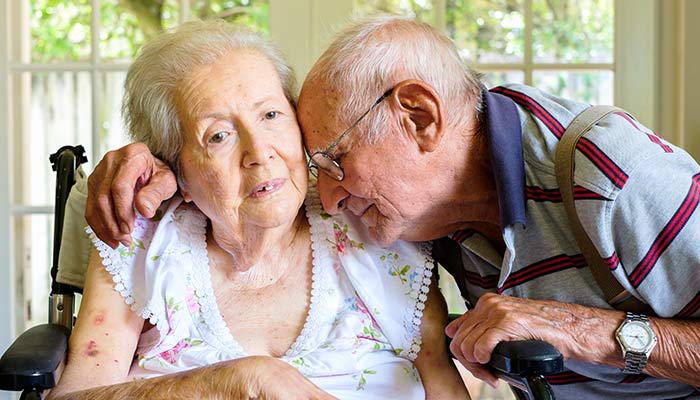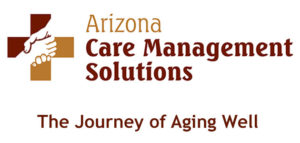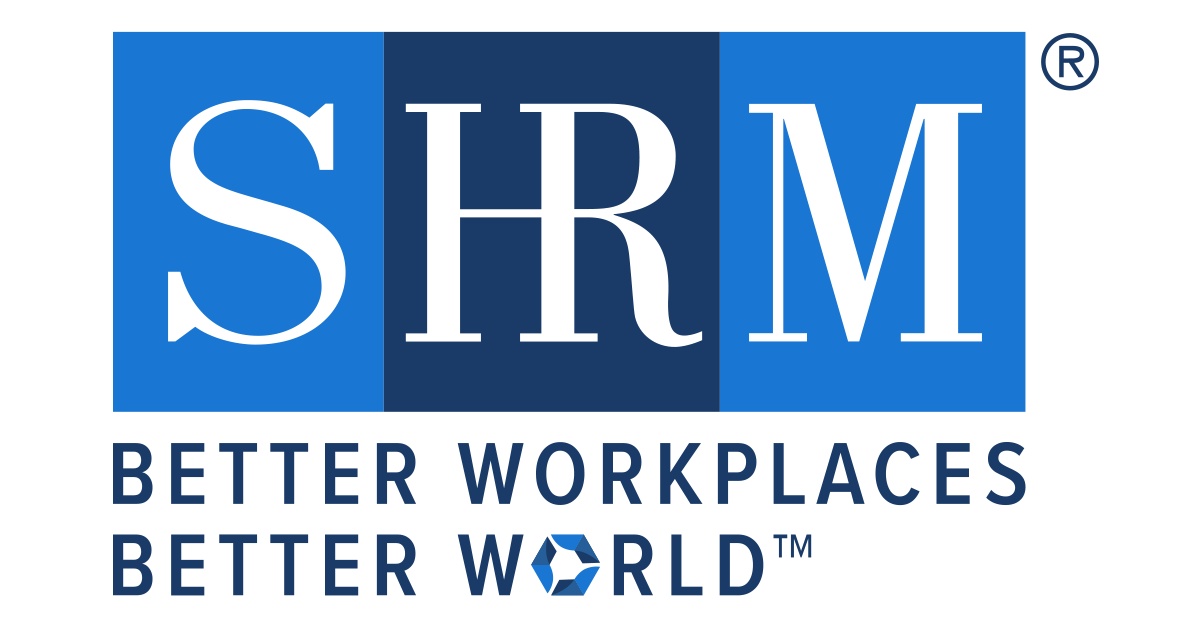
The focus of the final stage is completely on comfort care. Most physical abilities are so limited at this point, that the person you care for may spend most of his or her time in bed or in a chair. And language abilities are so impaired that he or she is not likely to be able to engage much. Keeping the person with dementia clean and content is the highest priority.
Final stage of dementia
Common symptoms of the final stage
Below are some common signs of the final stage of dementia. (Most people at this stage show at least some of these symptoms.)*
Memory and thinking skills
- No awareness of past or future
Communication
- Unable to speak, or uses only a few words
Behavior and mood
- A “flat affect,” meaning an inability to show emotion
Daily self-care
- Needs to be fed, bathed, and have diapers changed
- Unable to walk without assistance
- Little desire to eat and may have swallowing problems
- Sleeps much of the time
Which of these challenges is the most pressing?
* Signs and stages adapted from a publication of the Alzheimer’s Association – Greater Illinois Chapter.
Return to topCommon tips, issues and concerns
- Meaningful visits. If your relative is no longer able to converse, visits can be awkward. This does not mean that your presence is without value. Your loved one can still benefit from tender contact with family members. Although speech may be limited, he or she probably still has use of the five senses: touch, taste, smell, sight, and hearing. Touch and affection are especially meaningful in this stage. Rubbing lotion on hands or feet, cuddling a pet together, or simply holding hands in loving silence can be very reassuring. Singing favorite tunes or hymns or reading poetry or favorite passages out loud is another way to spend time together. You can go outside and enjoy the smells and fresh air of nature, the sounds of the birds, and the feel of the sun on the skin. Even bringing items that smell good (perfumes or flowers) or favorite foods can create joyful sharing of a pleasant activity. An act as simple as brushing your relative’s hair can convey love and caring.
- Hallucinations and delusions. Hallucinations involve seeing things that others do not. Delusions are beliefs that are not founded in fact, such as fear that someone is trying to break into the house. Both are common in the final stage. Telling your relative that their visions or beliefs are not true will only breed mistrust. Instead, you can choose to go along with what they perceive if it seems harmless enough. Or, you can offer verbal and nonverbal reassurance that your relative is safe. You can then state what you are seeing and use distraction techniques to remove triggers. Keeping a room well lit can reduce shadows, which are often a source of unfounded fears. Playing soothing music might help. Medication is also an option if your loved one seems especially distressed.
- Non-verbal signs of pain. Keep your eyes and ears open for groans, frowns, rapid breathing, and/or clutching or grabbing parts of the body. Sudden restlessness or emotional outbursts may also be signs of pain, including a bladder infection or other internal condition. If your loved one cannot be soothed, then it is wise to call the doctor to rule out a medical cause.
- Poor appetite. Whereas the late stage involved problems with the mechanics of eating, in the final stage your relative may not have much desire to eat. This is a natural part of the process. Food may have to be pureed. But even if you use a spoon to feed your loved one, he or she may simply not be interested.
- Difficulty swallowing. Part of the decline of dementia often involves forgetting how to swallow correctly. Food, and especially liquids, can go down the wrong way, into the lungs. There are products you can buy that will thicken liquids to stimulate the natural swallowing reflex. This enhances the likelihood the fluid will go into the stomach rather than the lungs.
- Repeated pneumonias. Food or liquid that gets into the lungs can cause infections there. As swallowing becomes more difficult, food more frequently goes down the wrong pipe and creates what is called “aspiration pneumonia.” This is often the actual cause of death for persons with dementia. It is a painless way to pass. The body simply becomes unable to bring the lungs back to a level of health needed to survive.
- Consider treatments carefully. Because people in this stage cannot make decisions for themselves, you will need to rely upon the decision maker established in your relative’s advance directive. Hopefully the decision maker knows your relative’s personal values enough to make treatment decisions based on what your relative would want. Painful procedures and difficult side effects are hard for a person with dementia to understand. Often they are scary. Especially because the final stage means the natural end is near, you may choose instead to allow your confused loved one a better quality of life. The focus is on staying comfortable rather than subjecting him or her to tests and activities that will be scary, potentially painful, and will only prolong the inevitable.
- Ask the doctor about hospice. Hospice care can be ordered by a doctor and is completely covered by Medicare. It involves a team of professionals, including a doctor, a nurse, a social worker, and a chaplain. They have special training in keeping patients comfortable all the way through the dying process. The hospice team understands the special needs of patients who are in the final stage of dementia. In addition, they can help you make decisions you may be called upon to make because your family member is no longer able to express health care preferences.
Which of these tips appeal most?
Return to top





